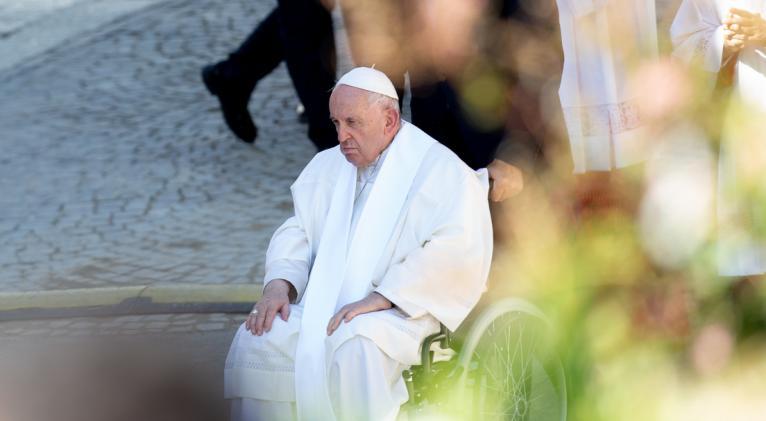Pope Francis: Between Humility and Reform
especiales

The death of Jorge Mario Bergoglio, Pope Francis, on Monday, April 21, at the age of 88 in his residence at the Vatican’s Casa Santa Marta, marks the end of a unique era in the history of the Catholic Church. Not only was he the first Latin American and Jesuit pope, but he was also a religious leader who carried out profound reforms, championed a Church closer to the poor, and never shied away from speaking out against the injustices of the modern world.
In recent years, his health had shown signs of decline. The pontiff suffered from bilateral pneumonia with a polymicrobial infection that worsened his physical condition. Since February, when he was hospitalized for bronchitis that developed into pneumonia, until his return to the Vatican after more than a month of treatment, he appeared increasingly frail. Using a wheelchair and showing visible bruises from a domestic accident, Francis persevered—just as he had for decades—driven by faith and pastoral commitment.
Yet beyond his physical decline, Pope Francis left an indelible mark on the Church and the world. His straightforward style and constant advocacy for the marginalized made him a respected figure, even beyond Catholicism. He urged young people to "make a mess," encouraging them to take action and stand up for their beliefs. That phrase, spoken during the 2013 World Youth Day in Brazil, captured the spirit of a papacy that prioritized the streets over palaces.
Francis was a pope of the people. Not only did he talk about soccer (admitting his love for Argentina’s San Lorenzo), but he also chose to live in the modest Casa Santa Marta instead of the lavish Apostolic Palace. In his many travels—visiting over fifty countries—he preached peace, human dignity, the need to care for the planet, and the importance of building bridges where walls once stood. His critiques of unchecked capitalism, global indifference, and war positioned him as a moral leader beyond religious doctrine.
His reformist legacy is undeniable. He courageously confronted sexual abuse crimes within the clergy, strengthening policies for reporting and punishing such offenses. He pushed for changes in the Code of Canon Law, allowing greater participation of women in church roles, and while he did not alter doctrine, he publicly stated that LGBTQ+ people "are children of God" and have a right to a family. His words opened doors for debate within a traditionally rigid institution.
Yet Francis was not without controversy. Before becoming pope, as Archbishop of Buenos Aires, he clashed with the governments of Néstor Kirchner and Cristina Fernández, particularly over his criticisms of poverty, certain policies, and laws like same-sex marriage. Some accused him of social conservatism, though as pontiff, he showed nuance, broadening his understanding of contemporary issues and fostering greater tolerance in Church discourse.
The first pope born in Latin America took his name in honor of St. Francis of Assisi, the saint of the poor, and sought to honor him through his actions. That Argentine chemical technician, the son of Italian immigrants raised in a humble Buenos Aires neighborhood, built a priestly career on simplicity, social commitment, and scholarship. He was a teacher, theologian, spiritual director, bishop, and cardinal before ascending to the highest office in the Catholic Church.
From his election on March 13, 2013, Francis worked to bring the Church closer to the margins. He fought against clericalism, advocated for a Church free of luxury and privilege, and championed global causes like environmental protection and social justice. Though his reforms faced internal resistance, his leadership revitalized the papacy and expanded interfaith and intercultural dialogue.
With his passing, the world bids farewell to a deeply human pope—one who showed vulnerability, asked forgiveness for the Church’s mistakes, and always emphasized the need for mercy. Though his work remains unfinished, his legacy paves the way for a Church in transformation, which must now choose whether to continue his reforms or revert to old ways.
Today, as the world mourns, his words to the youth echo: "Make a mess." Perhaps his greatest lesson was not an encyclical or an official decree, but an enduring call to speak up, to take action, to make faith a living force. Pope Francis has died. But his message lives on in millions.
Translated by Sergio A. Paneque Díaz / CubaSí Translation Staff














Add new comment